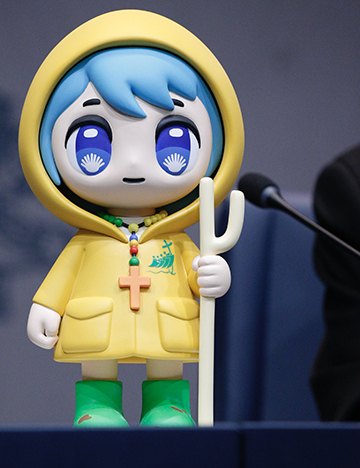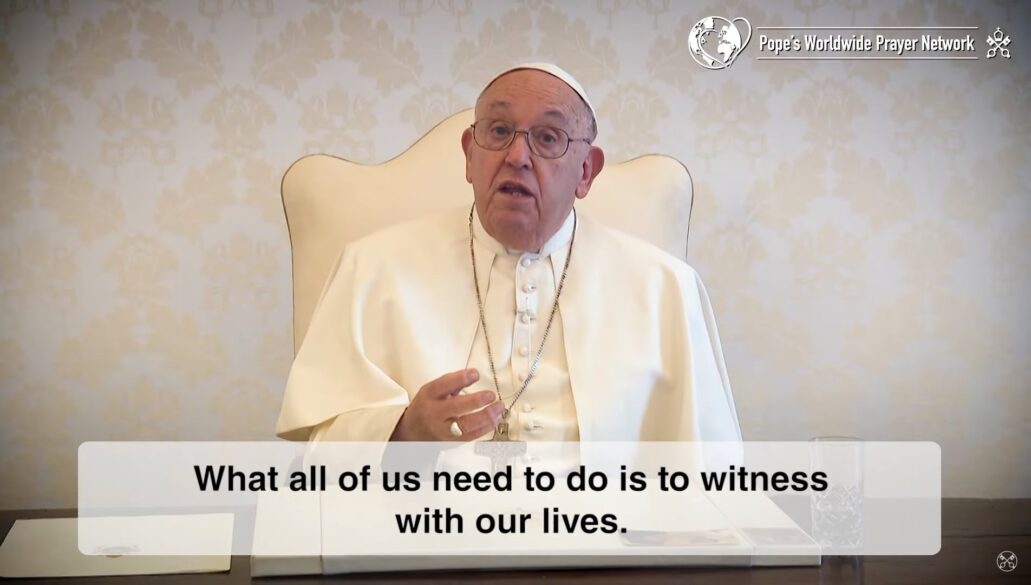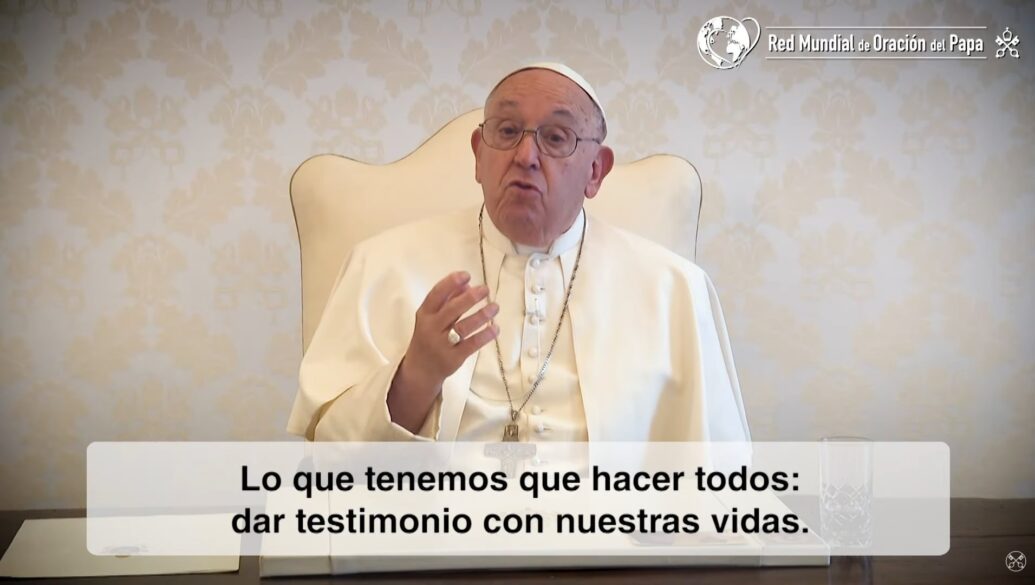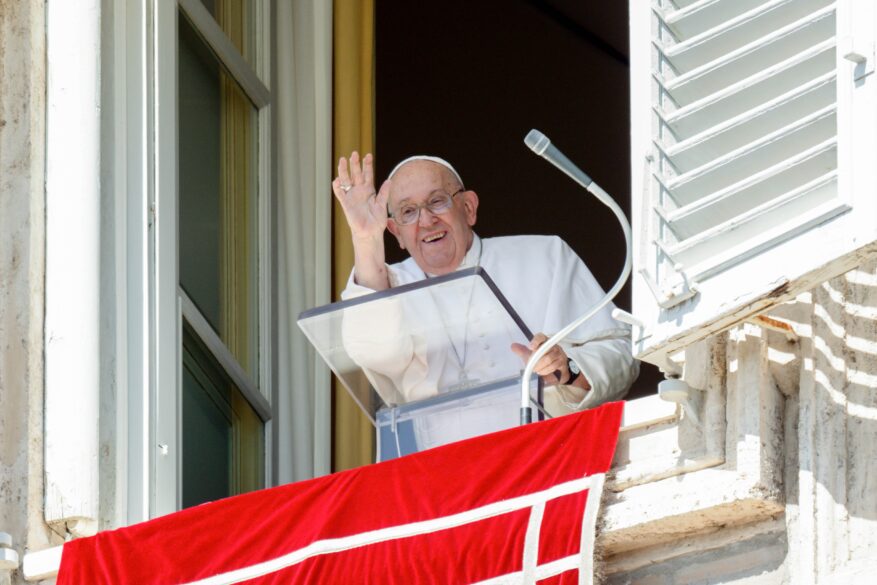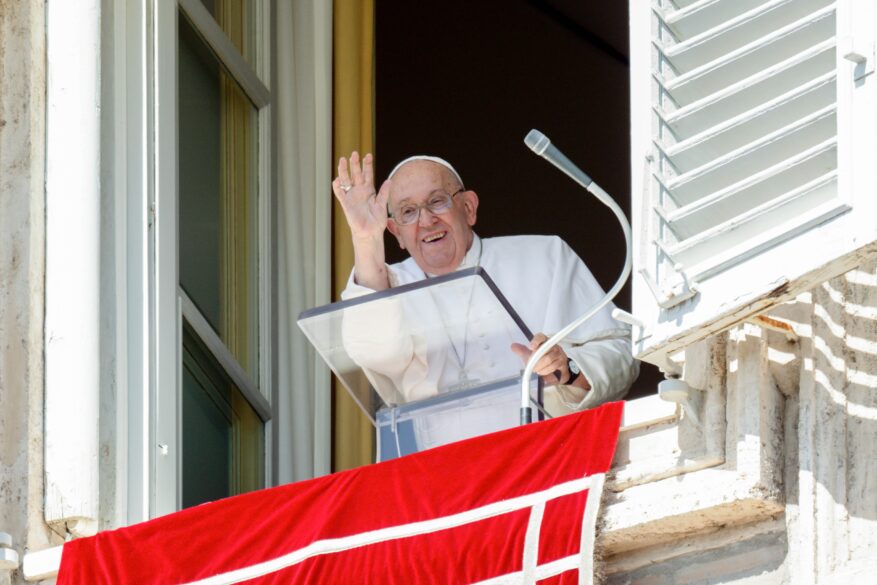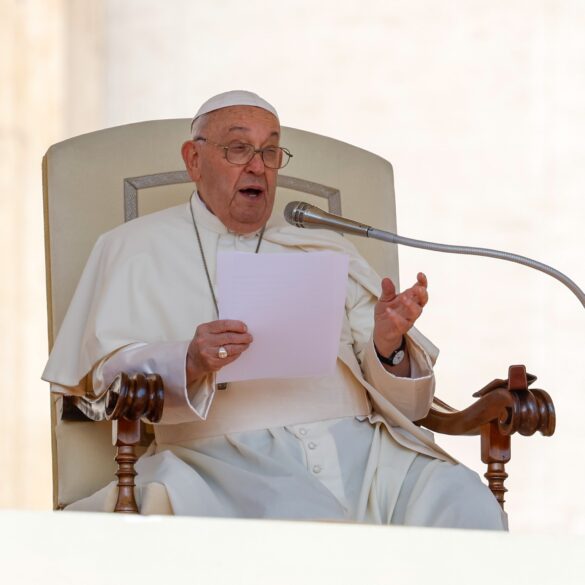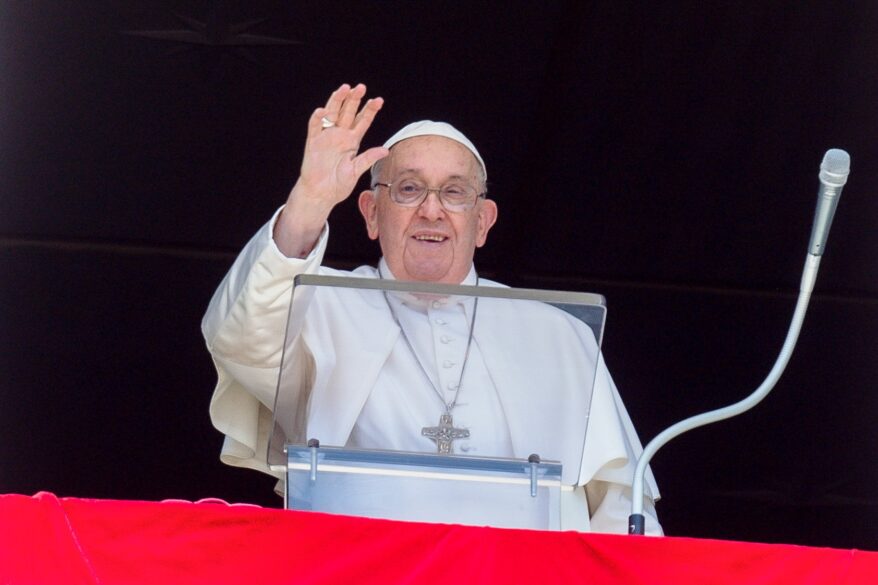By Justin McLellan
VATICAN CITY (CNS) – People in positions of authority should care for the vulnerable and exercise their power with humility, not with hypocrisy and arrogance, Pope Francis said.
Reflecting on the day’s Gospel reading from St. Mark, the pope highlighted Jesus’ warning about “the hypocritical attitude of some scribes” who use their prestige in the community to look down on others.
“This is very ugly, looking down on another person from above,” the pope told visitors gathered in St. Peter’s Square Nov. 10. “They put on airs and, hiding behind a facade of feigned respectability and legalism, arrogated privileges to themselves and even went so far as to commit outright theft to the detriment of the weakest, such as widows.”
In St. Mark’s Gospel, Jesus denounces the scribes who “devour the houses of widows and, as a pretext, recite lengthy prayers,” adding that “they will receive a very severe condemnation.”
Pope Francis said that rather than using their authority to serve others “they made it an instrument of arrogance and manipulation,” to the point where “even prayer, for them, was in danger of no longer being a moment of encounter with the Lord, but an occasion to flaunt respectability and feigned piety, useful for attracting people’s attention and gaining approval.”
As a result, the pope said those leaders “behaved like corrupt people, feeding a social and religious system in which it was normal to take advantage of others behind their backs, especially the most defenseless, committing injustices and ensuring impunity for themselves.”
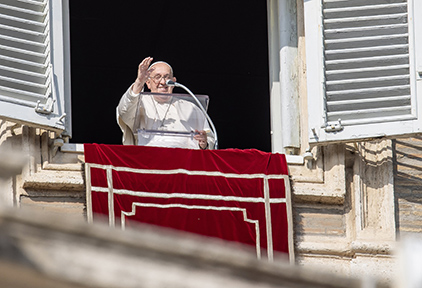
In contrast, Jesus “taught very different things about authority,” Pope Francis said.
“He spoke about it in terms of self-sacrifice and humble service, of maternal and paternal tenderness toward people, especially those most in need,” he said. “He invites those invested with it to look at others from their position of power, not to humiliate them, but to lift them up, giving them hope and assistance.”
After reciting the Angelus, the pope prayed for the victims of a Nov. 9 volcanic eruption in Indonesia, which he visited in September. He also expressed his closeness to the people of Valencia, Spain, affected by severe floodings and mudslides.
The pope also recalled the situation in Mozambique, where 21 people have been killed in clashes with police following a disputed election in October. He prayed for the people of Mozambique, asking that “the present situation does not cause them to lose faith in the path of democracy, justice and peace.”
The day before the opening of COP 29, the U.N. climate conference in Baku, Azerbaijan, Pope Francis prayed that participating nations would “may make an effective contribution for the protection of our common home.”

